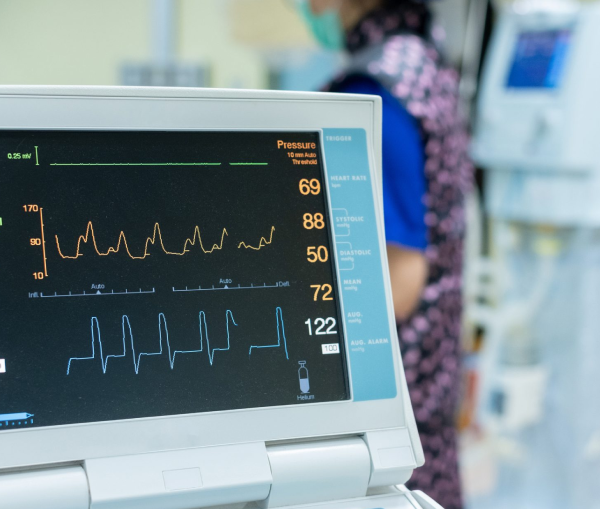Understanding Cardiac Screenings
Here’s some information you can use in a blog about Understanding Cardiac Screenings:
What is a Cardiac Screening?
- Cardiac screening refers to a set of tests and procedures designed to assess the health of your heart and identify potential risks for heart disease. These screenings help detect issues such as high blood pressure, high cholesterol, arrhythmias (irregular heart rhythms), and more, often before symptoms occur. Early detection is key to preventing heart attacks, strokes, and other cardiovascular events.
Why is Cardiac Screening Important?
- Heart disease is one of the leading causes of death globally, and many heart problems develop without noticeable symptoms. Regular cardiac screenings allow you to monitor your heart’s health and take preventive steps to reduce your risk. Identifying risk factors early can lead to more effective treatments and lifestyle changes, potentially saving lives.

Common Types of Cardiac Screenings
- Blood Pressure Measurement: Checking your blood pressure is a simple yet vital way to detect hypertension, which is a major risk factor for heart disease and stroke. Regular screenings can help manage and lower blood pressure before it leads to serious health issues.
- Cholesterol Screening:High levels of cholesterol in the blood can cause plaque buildup in the arteries, increasing the risk of a heart attack. A blood test, often referred to as a lipid profile, helps determine the levels of LDL (bad cholesterol), HDL (good cholesterol), and triglycerides.
- Electrocardiogram (ECG or EKG): An ECG measures the electrical activity of the heart. It helps detect arrhythmias, heart attacks, and other heart rhythm disorders. This test is quick, painless, and commonly used for both routine checkups and emergency evaluations.
When Should You Get a Cardiac Screening?
- Age and Risk Factors: Most health guidelines recommend regular cardiac screenings starting at age 20, particularly for individuals with risk factors such as a family history of heart disease, high cholesterol, high blood pressure, smoking, or diabetes.
- Family History of Heart Disease:If heart disease runs in your family, early screenings are especially important. This can help you take preventive measures before any symptoms develop.
- Lifestyle Factors: If you have an unhealthy diet, are sedentary, or have other risk factors (like obesity), your doctor may recommend more frequent screenings.
What Happens During a Cardiac Screening?
- Cardiac screenings are typically non-invasive and quick. For example, blood pressure readings only take a few minutes, while an echocardiogram or stress test may take 30 minutes to an hour. Depending on the type of screening, you may be asked to rest, exercise, or avoid certain foods or drinks before the test.
- Your healthcare provider will guide you on how to prepare for each type of test. In some cases, additional diagnostic tests may be needed based on the results of the initial screenings.
How Often Should You Have a Cardiac Screening?
- The frequency of cardiac screenings depends on your age, risk factors, and medical history. For individuals with no major risk factors, screenings may be recommended every 4-6 years starting in their 20s.
- Those with risk factors such as high cholesterol, family history of heart disease, or existing heart conditions may need more frequent screenings (annually or every 1-2 years) to closely monitor their heart health.
Understanding the Results
- After your screening, your healthcare provider will discuss the results with you. If your blood pressure or cholesterol levels are high, or if any other abnormalities are detected, they may recommend further testing or treatment. This could include medication, lifestyle changes, or additional monitoring.
- For example, if an EKG shows signs of arrhythmia, your doctor may recommend follow-up tests or treatments to address the condition.
Benefits of Cardiac Screenings
- Early Detection: Cardiac screenings can identify problems before symptoms arise, allowing for early intervention and treatment.
- Prevention:Identifying risk factors like high cholesterol or hypertension early can help you manage them through lifestyle changes or medications, reducing the risk of heart attacks, strokes, and other serious heart issues.
- Improved Heart Health: Regular screenings encourage a proactive approach to heart health, leading to better overall cardiovascular care and long-term well-being.
How to Prepare for a Cardiac Screening
- Talk to Your Doctor: Before undergoing any screening, discuss your medical history, family history of heart disease, and any current symptoms with your doctor. They will recommend the appropriate tests based on your personal risk factors.
- Lifestyle Adjustments:In some cases, you may be asked to make certain lifestyle changes before your test. For example, you might be asked to fast before a cholesterol test or refrain from caffeine before a stress test.
Taking Action After Screening
- If any heart disease risk factors are identified during your screening, it’s important to follow your healthcare provider’s advice for treatment or prevention. This could involve making lifestyle changes, such as adopting a heart-healthy diet, increasing physical activity, quitting smoking, or managing stress.
- In some cases, medications may be prescribed to manage cholesterol, blood pressure, or other cardiovascular conditions.